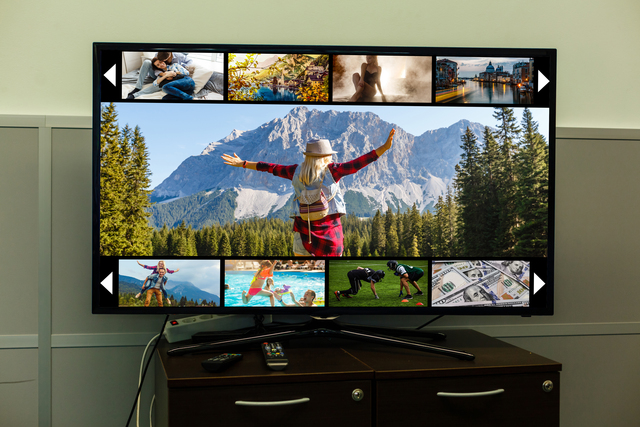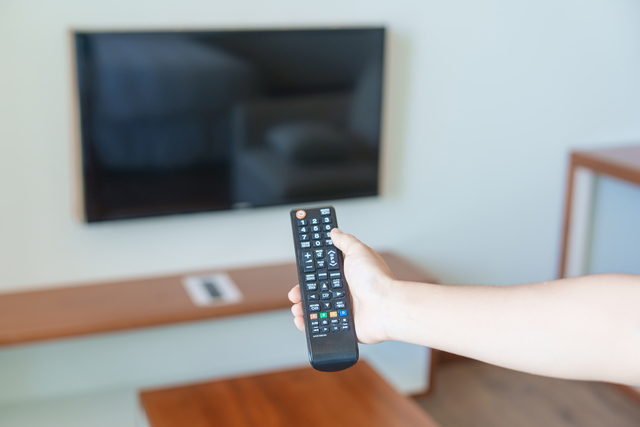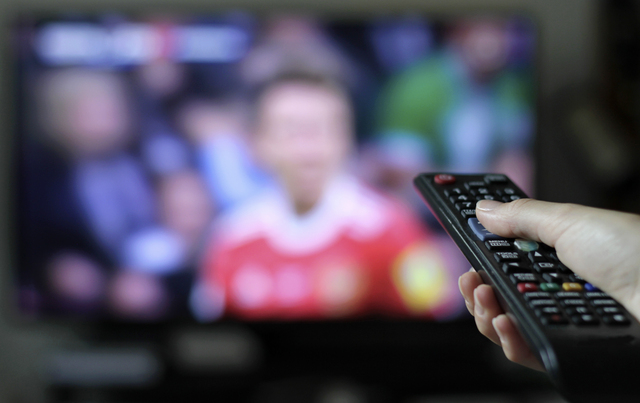Why Does IPTV Lag? Quick Fixes for Stream Issues | StaticIPTV.uk
Why Does IPTV Lag? Causes of IPTV Lag Some of the common causes of IPTV lag include: – Slow or Unreliable Internet Connection: The primary cause of lagging in IPTV is a slow or unreliable internet connection. IPTV requires a stable and fast internet connection to function properly. – Wi-Fi Interference: IPTV streaming may buffer or freeze when your Wi-Fi is experiencing significant interference. This can disrupt the smooth flow of data and lead to lag issues. – Congested Provider Network: If the IPTV provider network is congested, it can also cause buffering and freezing issues. When too many users are accessing the network simultaneously, it may impact the quality of the stream. Impact of Wrong Middleware Selection Another factor that can contribute to IPTV lag is choosing the wrong middleware. The middleware is a crucial component that bridges the gap between the user interface and the back-end applications. If the middleware is not compatible with the IPTV system or lacks the necessary features, it can result in performance issues such as lagging, buffering, and freezing. Overall, it is essential to address these underlying causes to ensure a seamless IPTV viewing experience without any lag or disruptions. Quick Fixes for Stream Issues Switching Servers for Better Performance When customers face IPTV buffering or freezing issues, the suppliers take proactive measures to address these concerns. Occasionally, the Administration team conducts tests on the servers and may adjust channel configurations to enhance performance. One critical factor that suppliers assess is the internet speed; if the connectivity speed is inadequate, channels may load slowly, leading to increased buffering time. Therefore, when troubleshooting customer-reported problems, the first step is to check and ensure optimal internet speed. Checking Local Network Configuration Apart from internet speed, another crucial aspect that impacts IPTV streaming quality is the local network configuration. Suppliers often recommend customers verify their network settings and ensure that there are no issues causing interruptions in the IPTV stream. By addressing any local network configuration issues, customers can significantly improve the overall streaming experience and reduce instances of buffering or freezing. Sometimes the Administration team conducts tests on the server(s) and moves channels to test for better performance, considering factors like internet speed. If the internet speed is low, channels may not load quickly, leading to increased buffering time. Suppliers address IPTV buffering or freezing issues by first checking the connectivity speed when customers report problems. Reasons for Freezing Content Source Optimization Issues – Server Testing and Channel Adjustments: The Administration team at IPTV suppliers conducts regular tests on servers to ensure optimal performance. Adjusting channel configurations can enhance streaming quality. – Internet Speed Consideration: Low internet connectivity speed can result in slow loading of channels, leading to buffering problems. Slow Connection Impact – Local Network Configuration: Customers should check their network settings to address any issues disrupting the IPTV stream. – Performance Evaluation: To combat buffering and freezing, suppliers prioritize checking internet speed to identify and resolve connectivity issues efficiently. Wi-Fi and Middleware Solutions Using IPTV Box with Built-in Wi-Fi – Advantages: – Provides a dedicated wireless connection for IPTV streaming. – Ensures a strong and stable connection to avoid freezing and buffering. – Easy setup and convenient usage for customers. – Disadvantages: – Costlier than traditional methods. – May require additional setup or configuration. Importance of Proper Middleware Selection – Benefits: – Acts as a bridge between the operating system and IPTV applications. – Helps prevent channel freezing and buffering issues. – Enhances overall IPTV streaming experience. – Considerations: – Ensure compatibility with IPTV services. – Verify support for future upgrades or changes. Quick Fixes for Stream Issues Switching Servers for Better Performance When customers face buffering or freezing during IPTV streaming, suppliers proactively address these concerns. They conduct tests on servers, adjust channel configurations, and ensure optimal internet speed to enhance performance. Checking Local Network Configuration Apart from internet speed, local network configuration plays a vital role in IPTV streaming quality. Customers need to verify network settings to avoid interruptions in the stream. By addressing these issues, they can significantly improve their streaming experience. Troubleshooting Buffering Tips to Reduce Buffering – Opt for Wired Connection: Using an Ethernet cable can provide a more stable internet connection for IPTV streaming, reducing buffering issues caused by Wi-Fi interruptions. – Adjust Video Quality: Lowering the video quality can help in cases where internet speed is limited, reducing buffering during streaming. – Update Router Firmware: Ensure your router’s firmware is up to date to optimize network performance and minimize buffering. – Limit Concurrent Connections: If multiple devices are using the network simultaneously, it can lead to buffering. Limiting connections can improve streaming quality. Resolving Common Buffering Problems – Clear Cache and Cookies: Regularly clearing cache and cookies on IPTV devices can improve streaming performance by removing unnecessary data that may cause buffering. – Check for Background Downloads: Background downloads or updates on other devices connected to the network can consume bandwidth, affecting IPTV streaming quality. Pause or schedule downloads during streaming. – Restart Devices: Sometimes, simply restarting the IPTV device, modem, or router can resolve buffering issues by refreshing network connections. – Contact Support: If buffering persists despite troubleshooting, reaching out to the IPTV service provider for assistance in diagnosing and resolving the issue is recommended. By following these tips and addressing common buffering problems, users can enhance their IPTV streaming experience and enjoy uninterrupted viewing sessions. Analyzing Network Settings Router Configuration Checks When looking at network settings for optimal IPTV streaming, it’s crucial to focus on the router configuration. By ensuring that the router settings are appropriate, users can prevent lagging and buffering issues effectively. Checking on aspects like port forwarding, firewall settings, and Quality of Service (QoS) configurations can enhance the overall network performance for IPTV usage. Network Stability Importance Stability in the local network environment is paramount for a seamless IPTV streaming experience. Addressing any local network issues, such as signal interference, device crowding on the network, or outdated hardware, can greatly
Why Does IPTV Lag? Quick Fixes for Stream Issues | StaticIPTV.uk Read More »




